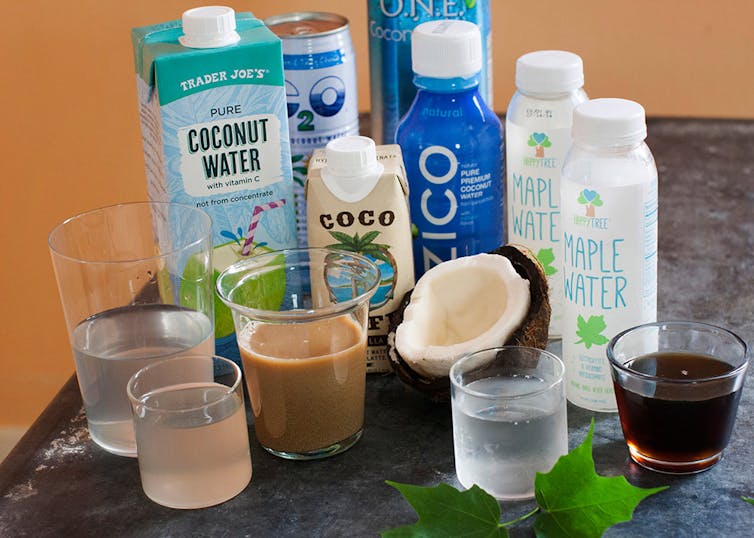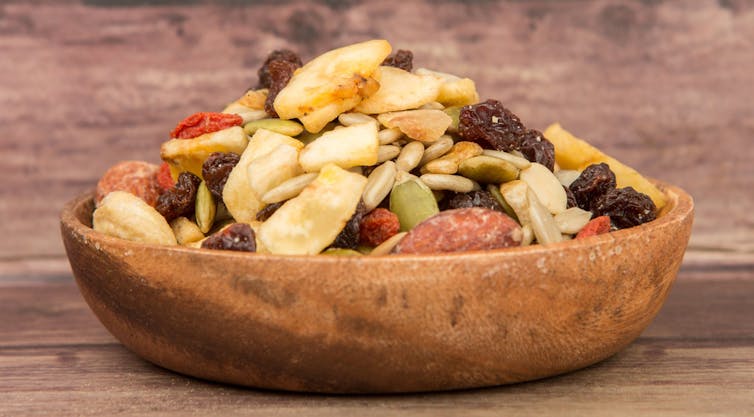Believe you’re within the aisle of your favourite grocery retailer, bombarded with loads of the most recent and largest merchandise in the marketplace. After grabbing a field of your favourite pasta off the shelf, you understand a brand new natural model of the spaghetti sauce you normally purchase. Strikingly, you understand that the fee is at virtually a 50 % top class in comparison to what your same old sauce prices.
Right here we cross once more, you assume: You need to empty your pockets to shop for the “wholesome” stuff.
If this describes the way you take into accounts the connection between meals well being and value, you’re now not on my own. This trust is so pervasive that recommendations on the right way to consume wholesome on the cheap are far and wide, implying that the majority shoppers assume this can be a actually tough activity. Who hasn’t heard Complete Meals’ nickname, “Complete Paycheck,” or noticed extremely reasonable pricing on dangerous rapid meals?
Measuring the connection between well being and value of meals is in reality tough as it may be evaluated in various tactics, from charge according to calorie to value according to moderate portion.
So how pervasive is the view that “wholesome = pricey” and why do shoppers assume this manner?
In a sequence of research lately revealed within the Magazine of Shopper Analysis, we discovered that buyers do have a tendency to imagine that wholesome meals are in reality costlier. Whilst this may occasionally in reality dangle true in handiest some product classes, we found out that many shoppers have a tendency to imagine this dating holds throughout all classes, without reference to the proof.

Matthew Mead/AP Photograph
Contents
Customers and lay theories
Customers seem to have a lay idea, or an instinct, that wholesome meals are costlier.
Discussions round meals deserts – low-income geographical spaces with restricted get entry to to inexpensive nutritious meals – additionally recommend that wholesome meals are certainly costlier than dangerous ones.
{The marketplace} and the media seem to have taught maximum U.S. shoppers to be expecting meals with particular well being homes to command a top class charge. Whilst that is the case in some cases (as an example, the USDA notes a value top class for lots of natural meals), in different instances a basic certain dating between charge and healthiness won’t exist.
A lay idea, in psychology, is the time period for a nonexpert’s trust about how the sector works. We will be able to have lay theories about how the whole lot from willpower to intelligence works. And those lay theories affect how we behave.
Customers even have lay theories about meals: as an example, believing that dangerous meals are tastier, without reference to whether or not that is objectively true.
In our analysis, we file a brand new lay idea shoppers have about meals: that wholesome meals are costlier. In different phrases, not like different analysis exploring whether or not there’s a true dating between meals well being and value, we had been all for working out how this trust (without reference to if it is objectively true) influences our meals possible choices. Throughout 5 research, we confirmed that even in meals classes the place there’s no relation between charge and well being, the wholesome = pricey instinct impacts how shoppers make choices about meals.
How a meals’s charge equates to well being
Diving deeper into working out what’s happening within the thoughts of the shopper, we needed to grasp: Do upper charge issues force shoppers to consider one thing as fitter? Or do cues about healthiness lead shoppers to imagine that the fee is upper?
In our research, we discovered that the instinct turns out to function in each instructions. This is, in our first learn about, we confirmed that after shoppers had been introduced with charge knowledge handiest, perceptions of the healthiness of a breakfast bar numerous with the fee: upper charge = fitter, cheaper price = much less wholesome. In a similar fashion, when given a diet grade of an “A-,” this sort of abstract analyses equipped by way of quite a lot of web pages, together with CalorieCount.com, the breakfast bar was once estimated as costlier than when the similar bar was once graded as a “C.”
In some other learn about, shoppers had been requested to make a choice the fitter of 2 identical rooster wraps. When the “Roasted Hen Wrap” was once priced at US$8.95 as opposed to a “Hen Balsamic Wrap” for $6.95, other people selected roasted over balsamic. But if the costs had been flipped, so had been the decisions. This is, other people had been actively opting for the costlier choice as a result of they believed it was once fitter.
Any other learn about confirmed that meals merchandise working counter to the wholesome = pricey instinct – this is, a product claiming to be wholesome however presented at a more cost effective than moderate charge for the product class – led shoppers to hunt out extra supporting proof earlier than they purchased right into a generic well being declare. In particular, learn about members introduced with a $0.99 protein bar (after being instructed that the common charge for protein bars is $2 according to bar) selected to view, on moderate, greater than 3 on-line opinions earlier than score how most probably they’d be to shop for the product themselves when compared with two opinions when the protein bar had a $4 ticket.
It merely took extra convincing when the fee turns out too just right to be true for said well being claims.

Path combine by the use of www.shutterstock.com
What’s wholesome?
The have an effect on of trust within the wholesome = pricey instinct, on the other hand, is going past simply basic inferences about charge and well being.
In some other learn about, we discovered that buyers used this instinct when valuing the significance of an unfamiliar particular aspect in a meals product. We requested members to evaluate the significance of the inclusion of DHA (docosahexaenoic acid) – which we instructed them is helping opposite macular degeneration, an age-associated eye illness that can result in imaginative and prescient loss – in a path combine. When the DHA path combine was once bought at a top class charge, members put the next worth on each DHA and the underlying well being situation. When it was once bought at a mean charge, members weren’t as persuaded that their food plan must come with DHA or that fighting macular degeneration was once as vital.
Apparently, it was once the unfamiliarity of DHA that drove those inferences. When nutrition A was once related to the similar well being declare, a relative charge top class didn’t adjust perceptions of ways vital nutrition A is as an aspect. This learn about means that persons are much more likely to depend on their lay theories when assessing well being claims which might be unfamiliar – a scenario they most probably face ceaselessly on the grocery retailer as meals producers ceaselessly introduce new merchandise claiming to incorporate the most recent well being aspect.
Forget about your intestine
In combination, our research disclose that buyers have a pervasive tendency to affiliate fitter meals merchandise and better costs.
If one is working with a vast funds whilst seeking to cook dinner and serve wholesome foods, then in all probability this isn’t an issue. Then again, the ones seeking to arrange a meals funds and be ok with the healthiness in their circle of relatives foods would possibly pay an excessive amount of for his or her diet. It will happen in spite of able availability of each pricing and dietary knowledge.
What’s the takeaway for shoppers? Everyone knows that charge and high quality aren’t completely correlated, however it doesn’t forestall us from the usage of charge to pass judgement on high quality once we don’t produce other knowledge.
So in case you’re actually enthusiastic about opting for wholesome meals with out overpaying, forestall and assume subsequent time you spot a well being declare paired with a top charge fairly than depending for your intestine emotions. A easy strategy to overcoming the affect of the instinct is to hunt out additional info before you purchase.
Getting additional info, which cellular gadgets let shoppers do simply, even whilst buying groceries in a shop, will allow you to depend on extra cautious, systematic occupied with the well being declare being introduced – fairly than simply your intestine’s take {that a} wholesome concept calls for emptying your pockets.
Supply By way of https://theconversation.com/does-a-healthy-diet-have-to-come-at-a-hefty-price-69321


